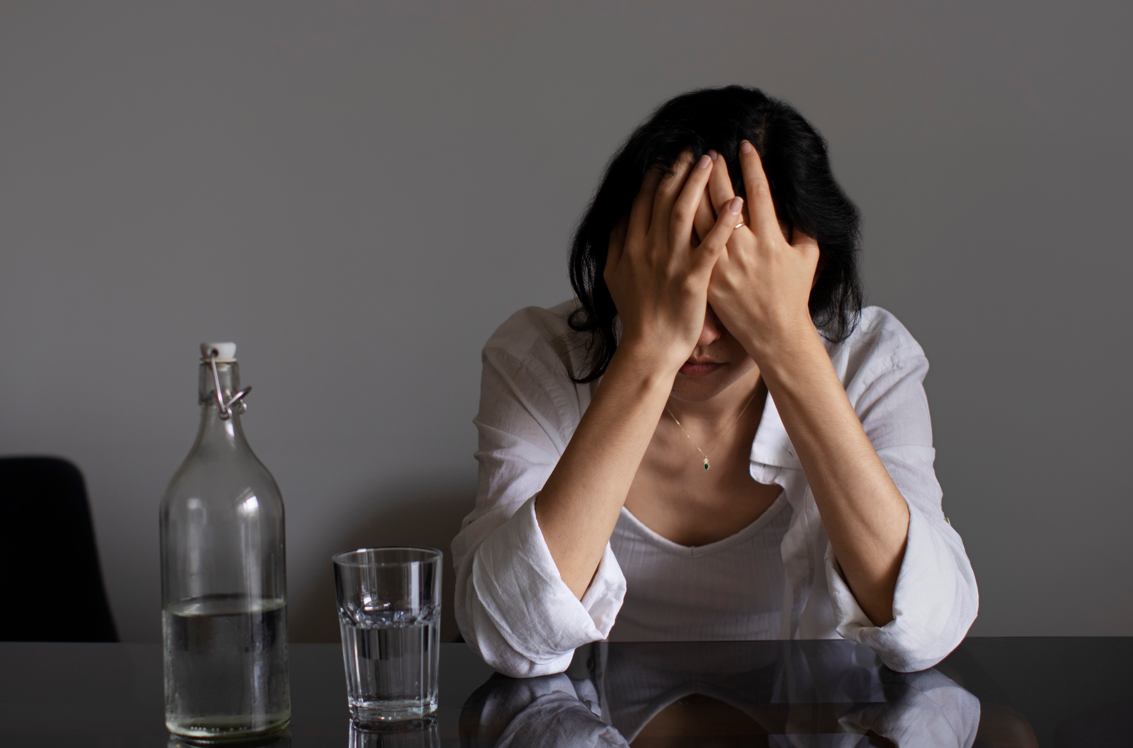Unmasking Anxiety Attack Symptoms
Anxiety attacks, also known as panic attacks, can be a distressing experience for those who go through them. Understanding the symptoms associated with anxiety attacks is crucial in order to recognize and address them effectively. In this section, we will delve into the basics of anxiety attacks and explore the common symptoms associated with them.
Understanding Anxiety Attacks
Anxiety attacks are intense episodes of overwhelming fear or panic that can occur suddenly and without warning. These episodes often peak within a few minutes and can last for several minutes or even longer. Anxiety attacks are typically triggered by stress, fear, or specific situations that cause distress.
During an anxiety attack, the body's natural response, known as the fight-or-flight response, is triggered, leading to a surge of adrenaline and heightened physical and emotional sensations. It's important to note that anxiety attacks are not life-threatening, although they can feel incredibly distressing in the moment.
Common Symptoms of Anxiety Attacks
Anxiety attacks can manifest with a variety of physical, emotional, cognitive, and behavioral symptoms. It's important to remember that each individual may experience anxiety attacks differently, and symptoms can vary in intensity. Here are some common symptoms associated with anxiety attacks:
Physical Symptoms
- Rapid heartbeat
- Shortness of breath
- Chest pain or discomfort
- Dizziness or lightheadedness
- Sweating or chills
Emotional Symptoms
- Overwhelming fear or panic
- Feeling of losing control
- Intense worry or apprehension
- Restlessness or irritability
Cognitive Symptoms
- Racing thoughts
- Difficulty concentrating
- Fear of going crazy or losing touch with reality
Behavioral Symptoms
- Avoidance of triggers or situations
- Seeking reassurance or safety
- Hypervigilance or hyperactivity
Recognizing these symptoms is the first step toward understanding and managing anxiety attacks. If you or someone you know experiences these symptoms regularly and they interfere with daily life, it may be helpful to consult a healthcare professional for a proper diagnosis and guidance on treatment options.
Remember, you are not alone in this. Anxiety attacks are a common experience, and there is support available to help you navigate through them.
Physical Symptoms
Anxiety attacks can manifest in various ways, and one of the most common ways they present themselves is through physical symptoms. These symptoms can be distressing and overwhelming for individuals experiencing anxiety attacks. Here are some physical symptoms commonly associated with anxiety attacks:
Rapid Heartbeat
During an anxiety attack, the body's fight-or-flight response is triggered, leading to an increased heart rate. This rapid heartbeat can be intense and may feel as if the heart is pounding or racing. It can be accompanied by palpitations, where an individual feels their heart beating irregularly or forcefully.
Shortness of Breath
Feeling a sense of breathlessness or having difficulty breathing is another physical symptom of an anxiety attack. This sensation can be distressing and may cause individuals to feel as if they are unable to get enough air. It can contribute to feelings of panic and further intensify anxiety symptoms.
Chest Pain or Discomfort
Chest pain or discomfort is a physical symptom that can occur during an anxiety attack. It may feel like a tightness, pressure, or squeezing sensation in the chest. These sensations can be alarming, leading individuals to worry about their heart health. However, it's important to note that chest pain or discomfort during an anxiety attack is typically not indicative of a heart problem.
Dizziness or lightheadedness
Feeling lightheaded or dizzy is a common physical symptom of an anxiety attack. It can create a sense of unsteadiness or a spinning sensation. Dizziness during an anxiety attack is often caused by hyperventilation or rapid breathing, which can disrupt the body's oxygen and carbon dioxide balance.
Sweating or Chills
Experiencing excessive sweating or sudden chills is another physical symptom that can accompany an anxiety attack. These sensations are a result of the body's response to stress. Sweating can be profuse, leading to damp palms, underarms, or forehead. On the other hand, chills may cause individuals to feel cold, shiver, or experience goosebumps.
Understanding these physical symptoms associated with anxiety attacks can help individuals recognize when they are experiencing an episode of heightened anxiety. It's important to remember that anxiety attacks are treatable, and seeking professional help can provide guidance on managing and reducing these symptoms.
Emotional Symptoms
Anxiety attacks can manifest in various ways, and one of the key aspects is the emotional impact they have on an individual. Understanding the emotional symptoms associated with anxiety attacks is crucial in recognizing and addressing these episodes effectively. Here are some common emotional symptoms that may accompany anxiety attacks:
Overwhelming Fear or Panic
During an anxiety attack, individuals often experience an overwhelming sense of fear or panic. This intense emotion can be triggered by specific situations, thoughts, or even seemingly unrelated factors. The fear or panic may be irrational or disproportionate to the actual threat present, causing distress and discomfort.
Feeling of Losing Control
A prevalent emotional symptom of anxiety attacks is the feeling of losing control. Individuals may experience a sense of helplessness or a belief that they are unable to manage their own thoughts, emotions, or physical sensations. This loss of control can heighten anxiety and contribute to feelings of vulnerability.
Intense Worry or Apprehension
Excessive worry or apprehension is another emotional symptom commonly associated with anxiety attacks. Individuals may find themselves caught in a cycle of negative thoughts, anticipating worst-case scenarios, and fearing potential outcomes. This constant worry can be distressing and may interfere with daily functioning and overall well-being.
Restlessness or Irritability
Restlessness and irritability are emotional symptoms that often accompany anxiety attacks. Individuals may feel agitated, on edge, or unable to relax. This restlessness can manifest as physical movements, such as fidgeting or pacing, as well as emotional irritability, leading to increased sensitivity to stimuli or interactions.
Recognizing these emotional symptoms is crucial in identifying anxiety attacks and seeking appropriate help and support. If you or someone you know experiences these emotional symptoms along with other physical, cognitive, or behavioral symptoms, it may be a sign to consult a healthcare professional for further evaluation and guidance.
Remember, everyone's experience with anxiety attacks may vary, and it's important to approach each individual with empathy and understanding. With the right support and treatment, individuals can learn to manage and cope with anxiety attacks effectively, leading to improved overall well-being.
Cognitive Symptoms
Anxiety attacks can manifest in various ways, and cognitive symptoms play a significant role in identifying and understanding these episodes. The cognitive symptoms experienced during an anxiety attack can be distressing and impact a person's ability to function effectively. Let's explore some common cognitive symptoms associated with anxiety attacks.
Racing Thoughts
One of the hallmark cognitive symptoms of an anxiety attack is the experience of racing thoughts. During an episode, individuals may find that their mind is overwhelmed with a constant stream of rapid and uncontrollable thoughts. These thoughts may be repetitive, intrusive, or centered around worries and fears. Racing thoughts can make it challenging to focus on tasks or engage in meaningful conversation, leading to increased anxiety and distress.
Difficulty Concentrating
Anxiety attacks can also cause difficulty in concentrating or maintaining focus. During these episodes, individuals may find it hard to pay attention to their surroundings or stay engaged in activities that typically interest them. This cognitive symptom can hinder productivity and make it challenging to perform tasks that require sustained attention or mental effort.
Fear of Going Crazy or Losing Touch with Reality
Another cognitive symptom commonly experienced during anxiety attacks is a fear of going crazy or losing touch with reality. This feeling of impending insanity can be distressing and contribute to heightened anxiety levels. It is important to note that this fear is typically unfounded and a result of the intense emotional and physical sensations associated with the anxiety attack.
To better understand the cognitive symptoms of anxiety attacks, it is crucial to recognize that each individual may experience these symptoms differently. Some may encounter racing thoughts, difficulty concentrating, and fear of losing touch with reality, while others may experience a combination of these or additional cognitive symptoms. If you or someone you know is experiencing anxiety attack symptoms, seeking professional help can provide guidance, support, and appropriate treatment options.
Behavioral Symptoms
Anxiety attacks can manifest not only in physical and emotional symptoms but also in various behavioral signs. These symptoms can affect how individuals respond and interact with their environment. Understanding these behavioral symptoms can contribute to identifying and addressing anxiety attacks effectively. Here are some common behavioral symptoms associated with anxiety attacks:
Avoidance of Triggers or Situations
People experiencing anxiety attacks often try to avoid situations or triggers that they perceive as threatening or stressful. They may go to great lengths to steer clear of circumstances that they believe can provoke an attack. This avoidance behavior can limit their daily activities and impact their quality of life.
Seeking Reassurance or Safety
Individuals going through an anxiety attack may seek reassurance from others or engage in activities that provide a sense of safety. They might repeatedly seek validation, support, or comfort from loved ones to alleviate their anxiety. Furthermore, they may gravitate towards environments or situations that they perceive as secure and calming.
Hypervigilance or Hyperactivity
During an anxiety attack, individuals may exhibit hypervigilance or hyperactivity. They may constantly scan their surroundings, looking for potential threats or signs of danger. This heightened state of vigilance can lead to restlessness and an inability to relax. In some cases, individuals may become hyperactive, engaging in excessive movement or fidgeting as a way to cope with their anxiety.
Understanding these behavioral symptoms of anxiety attacks can aid in recognizing and supporting those who experience them. It is important to approach individuals with empathy and encourage them to seek professional help if needed. With proper guidance and treatment, individuals can learn effective coping strategies and regain control over their lives.
Seeking Help for Anxiety Attacks
While it's common to experience occasional feelings of anxiety, anxiety attacks can be overwhelming and debilitating. If you are consistently experiencing anxiety attack symptoms, it may be time to consult a healthcare professional. They can provide the guidance and support necessary to manage anxiety effectively.
When to Consult a Healthcare Professional
Determining when to seek professional help for anxiety attacks can vary from person to person. However, if you experience any of the following situations or symptoms, it is advisable to seek medical attention:
- Frequent or Persistent Attacks: If anxiety attacks occur frequently or persistently, interfering with your daily life and functioning, it's important to consult a healthcare professional. They can help assess the severity of your condition and provide appropriate guidance.
- Physical Health Concerns: If you have physical symptoms during anxiety attacks that cause significant distress or raise concerns about your overall health, it's important to consult a healthcare professional. They can evaluate your symptoms and determine if any underlying medical conditions are contributing to your anxiety.
- Safety Concerns: If you experience thoughts of self-harm or suicide during anxiety attacks, it is crucial to seek immediate help from a healthcare professional or a helpline. They can provide the necessary support and resources to ensure your safety.
- Significant Impairment: If anxiety attacks significantly impact your ability to function in various areas of life, such as work, school, relationships, or social activities, it's important to seek professional help. A healthcare professional can help you develop coping strategies and explore treatment options to improve your quality of life.
Remember, reaching out for help is a sign of strength and taking control of your mental well-being.
Treatment Options for Anxiety Attacks
When seeking help for anxiety attacks, healthcare professionals may recommend a combination of treatments depending on the severity of your symptoms. Some common treatment options for anxiety attacks include:
Treatment Options
Psychotherapy - Talk therapy, such as cognitive-behavioral therapy (CBT), can help identify and address the underlying causes of anxiety and develop coping strategies.
Medications - In some cases, healthcare professionals may prescribe medications, such as selective serotonin reuptake inhibitors (SSRIs) or benzodiazepines, to help manage anxiety symptoms.
Lifestyle Changes - Incorporating healthy lifestyle habits, such as regular exercise, stress management techniques, and adequate sleep, can contribute to overall anxiety reduction.
Relaxation Techniques - Learning and practicing relaxation techniques, such as deep breathing exercises, mindfulness meditation, and progressive muscle relaxation, can help reduce anxiety symptoms.
Support Network - Engaging with a support network, whether it be friends, family, or support groups, can provide emotional support and understanding during the journey of managing anxiety attacks.
It's important to work closely with a healthcare professional to determine the most appropriate treatment plan for your specific needs. They can guide you through the process and ensure that you receive the support necessary to effectively manage your anxiety attacks.
Sources
1. https://www.mayoclinic.org/anxiety/symptoms
2. https://www.medicalnewstoday.com/











